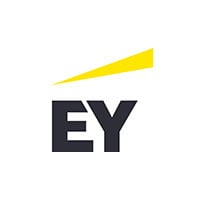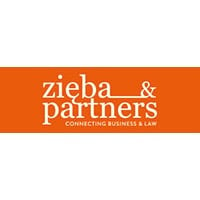

Legal counsel | Eiffage Polska Serwis




Anna Drozd
Legal counsel | Eiffage Polska Serwis
Since March 2018 I’ve been involved in the construction of an engine plant for Mercedes Benz Manufacturing in Jawor, a large-scale construction project divided into four packages, one of which is performed by Eiffage Polska. I am in charge of legal support for this project, providing day-to-day support to Eiffage’s construction team, [however] my job is frequently more “project manager” than standard in-house lawyer. That said, law is undoubtedly the basis. Fluent knowledge of legal terms and procedures facilitates negotiations or analysis of problems reported by the construction team, and I must mobilise site management to manage and close current problems and potential risks to avoid potential disputes and claims from third parties. I do my best to obtain decisions and reactions quickly. There are also situations when I softly step into “site management shoes” and coordinate deadlines, expiring contracts or adapt changing legal surroundings to our project reality.
The second project that I am actively involved is Eiffage Academy, an internal programme aimed at educating employees in on contract management issues. A key objective of this programme is transfer of legal aspects of contract management to our employees on site. My personal goal is to build legal awareness in our construction team of the most crucial aspects in relation with the client, subcontractors, designers, consortium partners. I believe that strong legal education on construction sites could minimise many potential risks and contribute to targeted positive result of the project. I conduct aforementioned trainings as well as prepare materials for them. During my day-to-day work I actively try to motivate all employees to participate in the programme.
I have previously been asked what sort of technical or IT programmes I use to take care of many topics simultaneously, and I answered – only my mind! For the avoidance of doubt, I do not ignore the needs of implementing tech products that make our work more effective, but I also believe that strong self-coordination could be comparably beneficial at work.
The code in the area you are working for is like a Bible. For instance, deep knowledge of civil code rules saved many of my negotiations.
Avoid formality. Both internal and external clients expect above all to close the case in a timely manner and your formal deliberations are not welcome.
Be a decision-making lawyer. During contract preparations you make many decisions not only legal but also business. Some of them require business confirmation but the lion’s share is on your part.
Be independent. Don’t worry about unpopular opinions or decisions. Not everything requires confirmation of everyone in your organisation.
Listen to your clients and ask them questions. The role of an in-house lawyer is to be a good and attentive listener.
I appreciate working with law firms that are not focused on generating workloads and excessive marketing but for searching efficient and safe solutions. It is especially reflected in the more litigious cases.
I avoid cooperation with law firms presenting very formal and theoretical approaches. The role of external advisor evolves along with the evolution of business approach. Nowadays, law firms should gain the trust of their clients by bigger flexibility and creativeness in their advisory.
FOCUS ON… TRAINING
Legally educated staff as part of company success – the special role of the in-house lawyer in the construction industry.
On a construction site, people working in different positions deal with legal aspects. They agree deadlines, remuneration with third parties, conclude agreements or terminate them, and they notify or accept claims. The site team (working especially on large scale fast projects) cooperates on daily basis with the investor, suppliers, designers, subcontractors and state authorities. Every relationship is based on arrangements that are partially legal and partially business.
Some of those arrangements could impact on the result of the project or even sometimes on the result of the whole company. Imagine if construction site staff do not know the legal aspects of their surroundings. It is obvious that they don’t have to know legal issues in detail because they use from specialised lawyers. But, legally educated staff work more efficiently. People are aware of their rights and obligations. People are much more conscious on their daily negotiations (not all negotiations require lawyers). People minimise company’s risk since they notify claims and prepare documentation in appropriate manner. Staff on site know that the contract with the client and the company procedures are their Bible. They know internal rules and cope with them more effectively.
So what is the role of in-house lawyer in these surroundings? In-house lawyers should not work on standby waiting for an emergency. Modern in-house lawyers are actively involved in the transfer of legal knowledge and internal procedures to the team on site. The effective transfer of legal issues to the team is a matter of importance. Skilled in-house lawyers could have impact to the result of the project not only by dedicated training but also day-to-day activities such as phone calls, explanatory e-mails and meetings. Moreover, in-house lawyers know how to transfer knowledge to be remembered.
I believe that strong legal education on construction sites could minimise many potential risks and contribute to targeted positive result of the project with the benefit to the whole company. Not only is this a challenge for lawyers working on the projects but also for the employees and the board of directors. In a nutshell and according to an excellent proverb, prevention is better than cure.